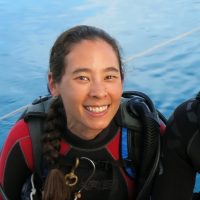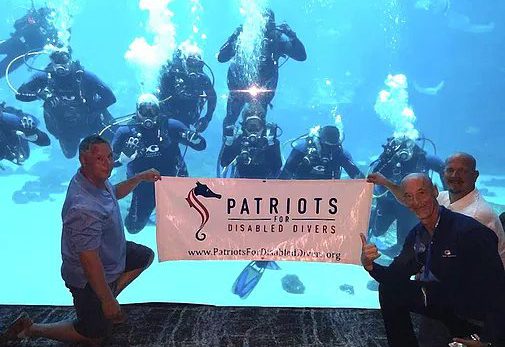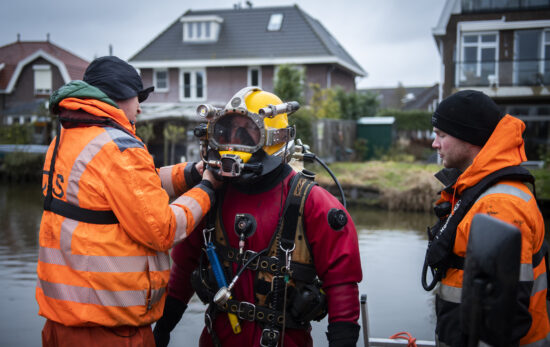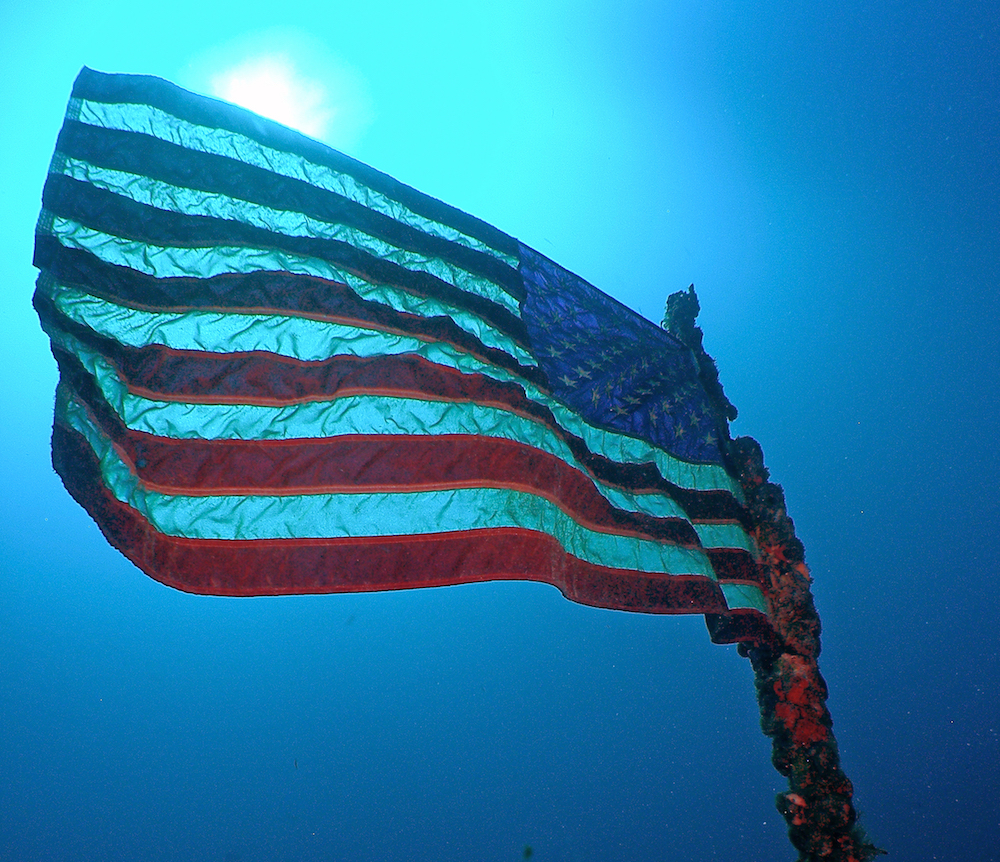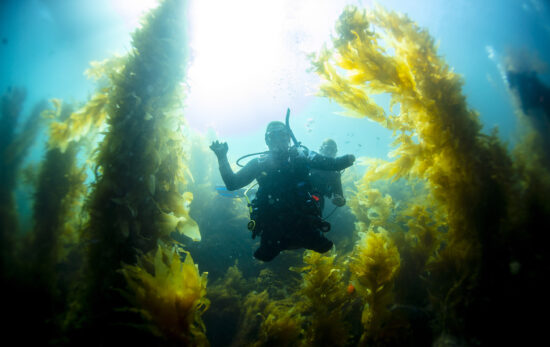Patriots for Disabled Divers (PFDD) offers therapeutic scuba diving training and experiences to people with disabilities through affiliate PADI dive shops in thirteen states (and growing). Founded in 2009 by retired US Navy Captain Jeff Currer and his wife Merial, Patriots for Disabled Divers has trained more than 750 wounded military veterans suffering from post-traumatic stress disorder (PTSD), traumatic brain injury, amputations, and other injuries – at no charge.
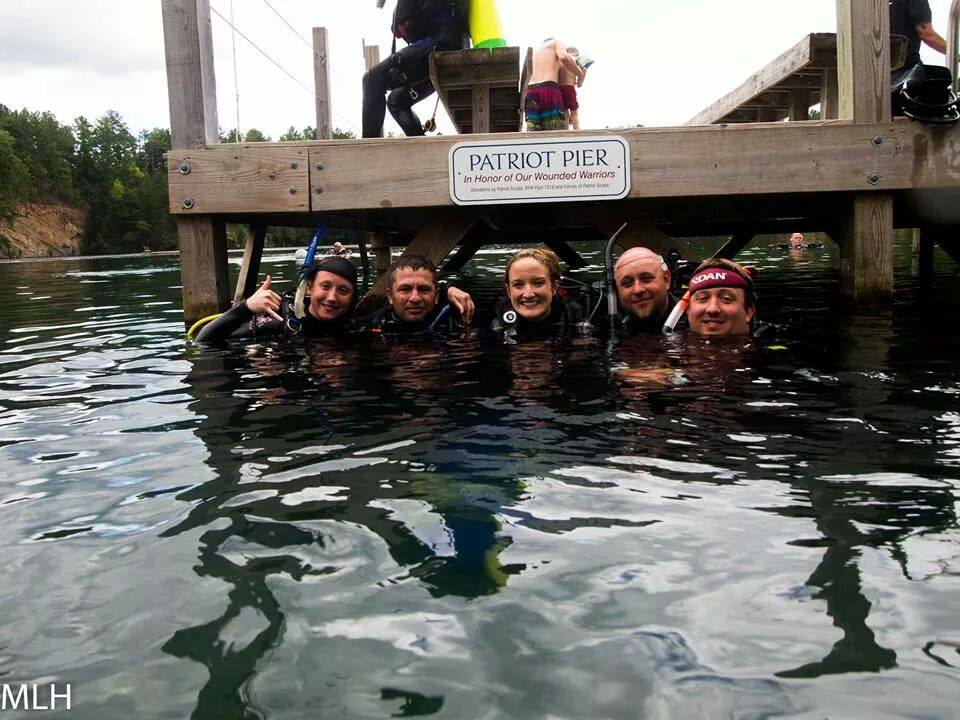
Scuba Diving As Treatment for PTSD, Traumatic Brain Injury and Other Injuries
In recent years, there has been increasing awareness of the importance of mental health. Conversations around experiencing and coping with trauma have thankfully become much more normalized.
In 2016, The New York Times reported a study about the benefits of scuba diving for veterans suffering from PTSD: “Traditional medical approaches generally rely on drugs and controlled re-experiencing of the trauma, called exposure therapy. But this combination has proved so unpopular that many veterans quit before finishing or avoid it altogether.”
In fact, Davis Graham, owner of PFDD affiliate Texas Dive Center in Houston, said, “I hear too many stories. [Veterans] go to the VA, they go to group therapy, and in the end, they get a big bottle of Valium. There are no duplicate injuries. You can’t help people by treating them all the same.”
Alternatively, scuba diving provides a unique combination of physical and social therapy. For disabled veterans, diving can almost become a form of pain relief. Underwater, the human body is nearly weightless – which reduces swelling, takes the pressure off joints, and reduces back and neck pain. A study conducted by Johns Hopkins University found veterans who completed a scuba certification “saw significant improvement in muscle movement, increased sensitivity to light touch and pinprick on the legs.”
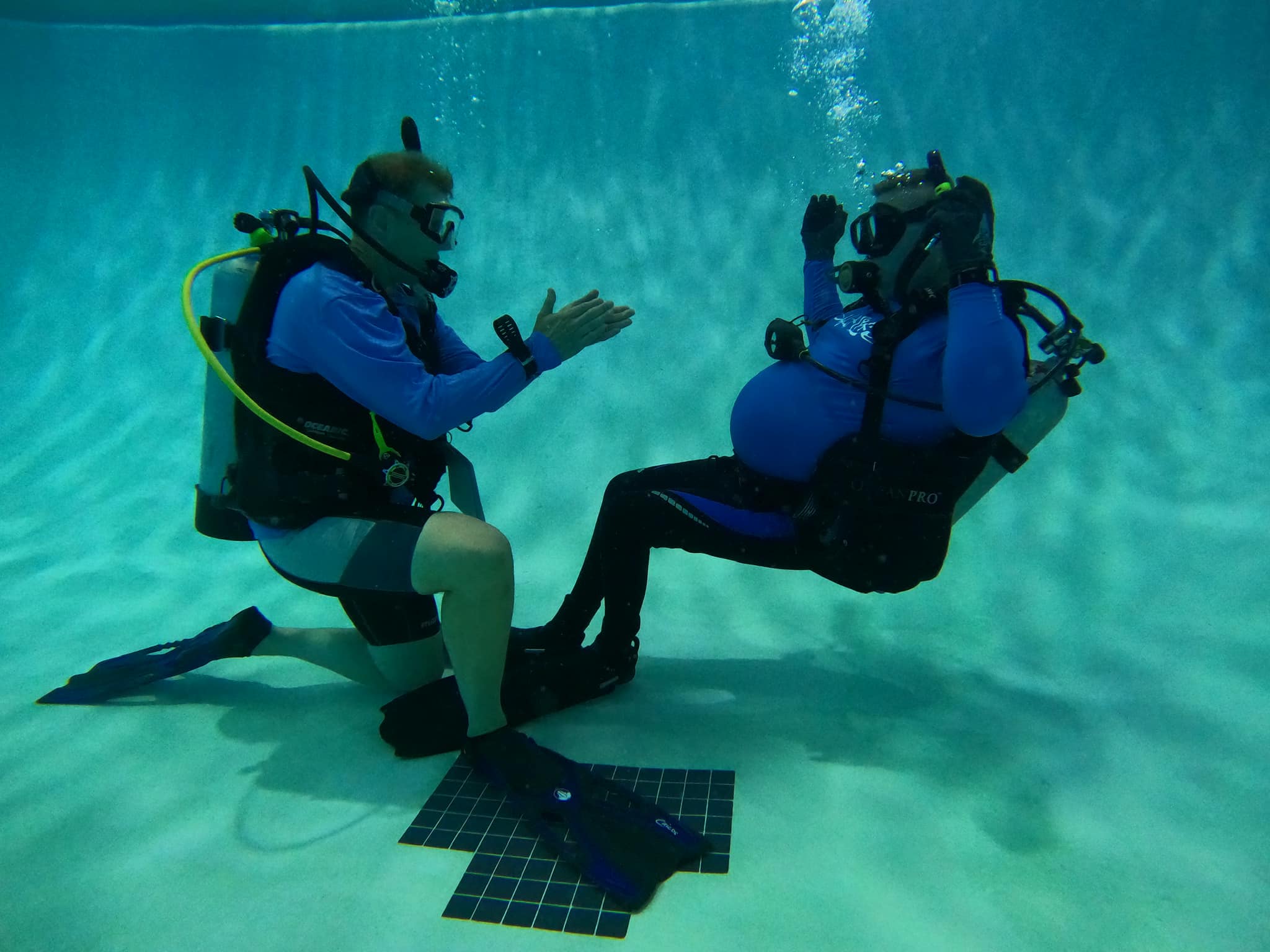
In terms of social therapy, getting scuba certified is also a way for military members to reconnect with family when they return from deployment. Instructor Kyle Larson from TL Sea Diving in Seattle-Tacoma recalls working with a woman who had been injured during her service. “She was really excited to continue on and get certified because she had a family member who dives. She did exceptionally well, and it was great to see her so happy.”
On top of that, research in recent years increasingly shows that water has an inherently calming and healing effect on the human mind. In fact, marine biologist Wallace J. Nichols has written an entire book, The Blue Mind, on this phenomenon. He explains that “[The blue mind] refers to a mildly meditative, relaxed state that we find ourselves in when we are in, on or under water.”
His book dedicates an entire section to the benefits of water activities, such as scuba diving, for disabled veterans. He explains that submerging in the underwater world can evoke feelings of awe and inspiration, which contributes greatly to a sense of well-being. Additionally, the physical nature of water also has immediate, soothing effects on the body and mind. Stress and anxiety levels, as well as overall brainwave activity, can become significantly reduced just from floating in the water.
What Veterans Can Expect from Scuba Diving
At Patriots for Disabled Divers affiliate dive shops like TL Sea Diving, participants start with a tour of the dive shop and an overview of the scuba gear. “After that, we get to know each other. Participants can tell us what physical disabilities they’re dealing with, or in the case of PTSD, what their triggers are, loud noises or confined spaces, for example,” said Larson.
“The next step is to try a Discover Scuba Diving experience. We get in the water, have fun, get familiar with the equipment, and help the person decide if they want to go on to the Open Water course. Most of the time, PFDD participants end up in a regular Open Water class, but we can also do a private class,” said Larson.
Waterdogs Scuba and Safety, a PFDD affiliate in Clarksville, TN, encourages PFDD participants to mix with other dive students. Co-owner Rich Holladay explained, “We’ve trained dozens upon dozens of servicemen and women, some of whom are on our staff to this day. We noticed military guys gravitate to each other, and that’s a great support system, but sometimes they just talk about the bad old days. So we give them the opportunity to be in a mixed group, meet new dive buddies, and make new friends.”
“I was at the pool doing an Open Water class. A participant’s wife was there, and she said, ‘I’m watching my husband out there, and he hasn’t smiled in six months, much less talked to anyone. Now I see him laughing and engaging with others.’ I’ll always remember that,” said Holladay.
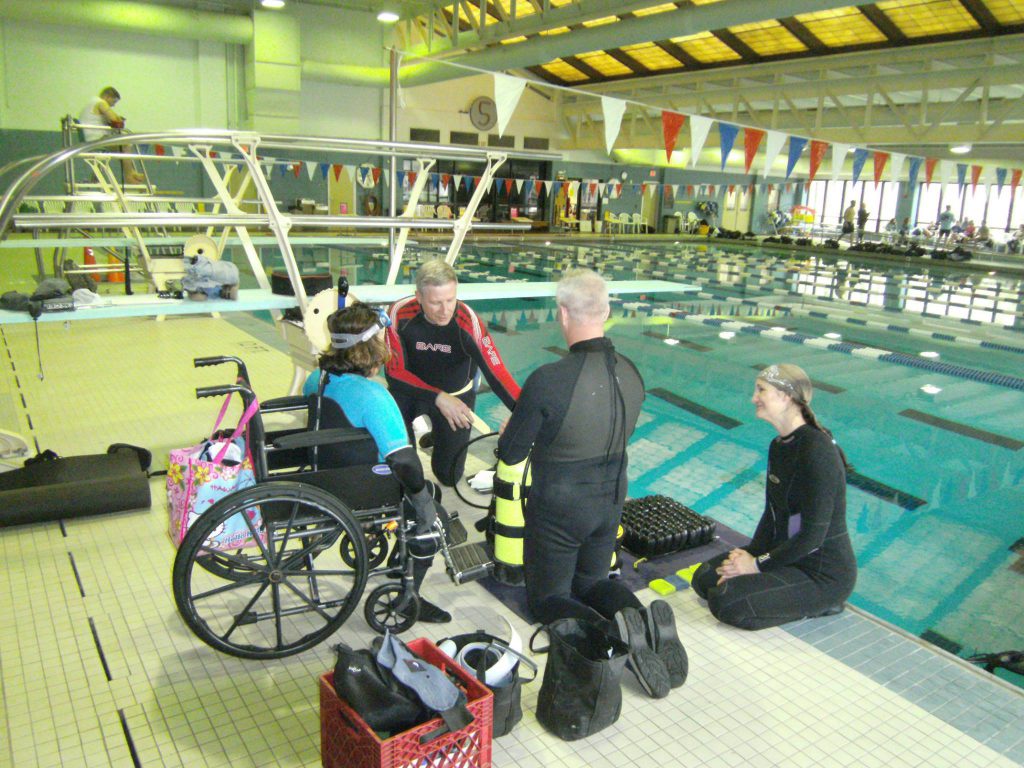
At Texas Dive Center, David Graham strives to keep twenty veterans enrolled at all times. “Why twenty?” said Davis, “Because that’s how many veterans take their own lives every day.” While that can seem like a disheartening statistic, ongoing research and active organizations like PFDD continuously look for new ways to understand and treat the mental health issues that many veterans deal with.
Real-Life Impact of Scuba Diving on Veterans
Graham has seen firsthand how scuba diving transforms and saves lives. “One of the young men I’m most proud of is Levi Westmoreland. He’s the great-nephew of the famous general William Westmoreland, who came to us through the Patriots for Disabled Divers program. He’s an instructor now, and he’s told me, ‘I’m not the same guy I was when I started.’ He even wrote me a letter that said: scuba saved my life.
“Now Levi is helping others. He was recently here in the pool working with a young man with severe PTSD and an Army Ranger who died on the table after one of his injuries. It’s amazing the people we meet through Patriots for Disabled Divers,” said Graham.
Graham, a PADI Course Director, describes one of his most memorable days: “A few years ago, we had 20 disabled veterans in the water with 20 Special Olympics children. All the veterans were certified through PFDD. You should have seen the looks on their faces working with the kids. It was one of the best days I’ve ever had as a scuba instructor.”
These heart-warming anecdotes are also increasingly corroborated by scientific research and quantifiable results. In the same Johns Hopkins study mentioned earlier, ten disabled veterans completed an Open Water course over a few days. Afterward, the veterans reported an astounding 80% reduction in PTSD symptoms. What’s more, is that disabled veterans experienced the lasting effects of these emotional and physical results for weeks and months after the initial diving course.
By taking a PADI course, veterans and non-veterans alike can quickly develop lasting bonds with fellow divers over the course of a few days. Additionally, the diving buddy system helps build trust-based relationships in a safe and controlled environment. Studies have shown that the buddy system can help veterans work through feelings of social detachment, which can be a common experience for those who experience PTSD.
Dive Shop Standards for Veterans
All PFDD affiliate stores are PADI 5 Star Dive Centers (or higher) with one or more Handicapped Scuba Association (HSA) Instructors on staff. PFDD founder and co-owner of PFDD affiliate Patriot Scuba, Merial Currer, explains, “We work with PADI 5 Stars to ensure the store has worked with students of all levels and is presenting a quality program. If students can’t meet the PADI requirements for certification, we can seamlessly move them into the HSA program.”
Another requirement for affiliate stores – get involved for the right reasons. “We want to work with dive shops who genuinely want to help those who served, not for the publicity,” said Currer.
“I grew up in a Navy family and learned early on that giving back and helping others is incredibly important in any community, especially in our military communities. To watch soldiers and sailors dive for the first time and to hear their comments about finally being in their happy place and feeling like they can now cope with the issues life throws at them as long as they can spend some time underwater is incredible. It’s one of the greatest feelings in the world knowing that our Pros are changing lives on a daily basis.”
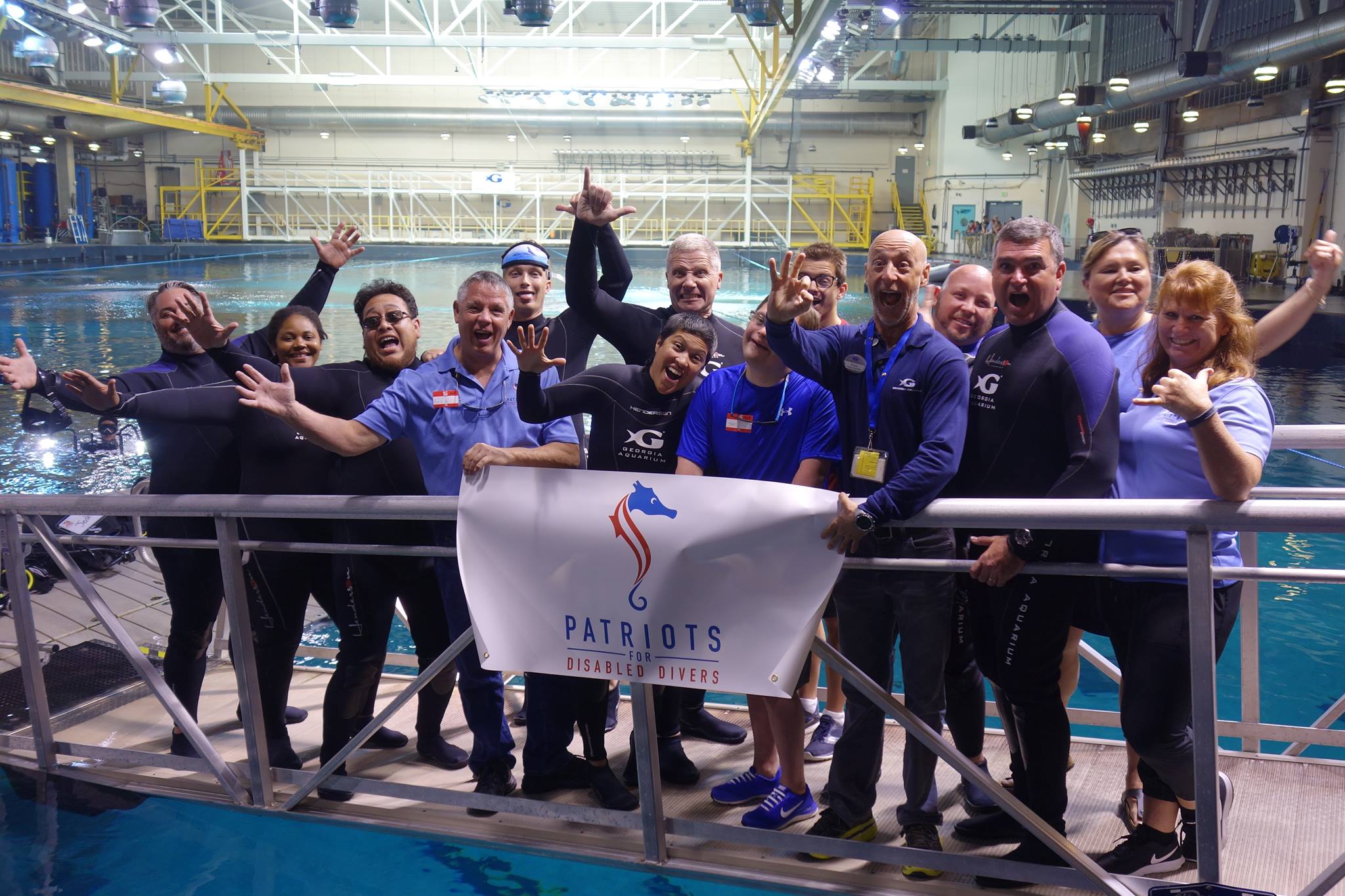
Davis Graham echoes these sentiments, “When it’s in your power to do something to help another person, do it. Don’t just talk about it do it. These things come back to you times ten. Not even that, it’s immeasurable!”
PFDD affiliates provide all the equipment for participants, including a mask, fins, and snorkel. There is no cost for veterans to participate; PFDD pays the dive center directly for the scuba course. The training is not donated.
To locate a PFDD affiliate in your area or for more information on becoming a PFDD affiliate, visit patriotsfordisableddivers.org. You can also support Patriots for Disabled Divers by making a donation. Assistance for veterans and others seeking relief from physical or psychological trauma is funded solely through donations from caring individuals in the diving and military community.
Further Reading
Learn how scuba diving helps people suffering from PTSD, TBI, and other injuries.
Find out how veterans and active duty members can receive military discounts and exclusive offers.
Read what PFDD participants have to say about their experience.
PADI is committed to supporting global efforts and being a catalyst for change through its Four Pillars of Change corporate social responsibility program. We will continue to spotlight amazing stories of triumph over adversity, illness, and hardships that testify to diving’s healing power. In diving, many people have found hope for their futures, and we aim to inspire others to find similar personal transformation and healing, both mentally and physically.
